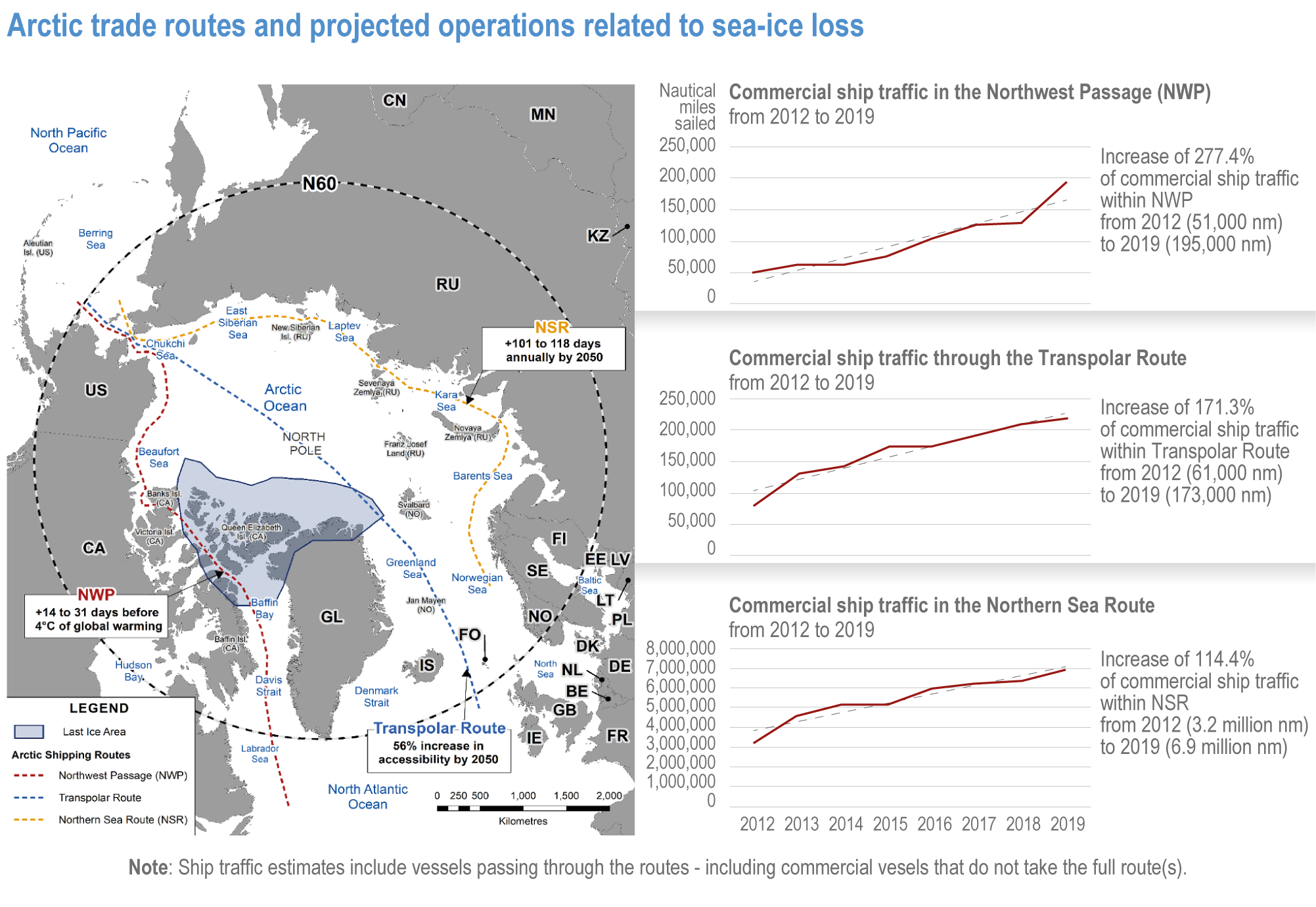Figure Box CCP6.1.1
Figure caption
Growth in Arctic maritime trade will result in increased emission of black carbon (Stephenson et al., 2018; Zhang et al., 2019; Wang et al., 2021), increases in ship-source underwater noise impacts on marine mammals (Halliday et al., 2017), higher rates of accidents and incidents among vessels from increasing mobile sea ice and newly accessible ice-free waters that lack charting (Haas and Howell, 2015; Howell and Brady, 2019), impacts to cultural sustainability for Indigenous Peoples (Olsen et al., 2019; Dawson et al., 2020) (high confidence), the potential for the introduction and propagation of invasive species (Chan et al., 2019; Rosenhaim et al., 2019), and sovereignty tensions with implications for global geopolitics (Drewniak et al., 2018) (medium confidence). Globalisation and the almost universal adherence to economic growth models among nations will continue to fuel maritime trade (Box 14.5). As sea ice decreases facilitates growth in Arctic maritime trade and transportation specifically, adaptation strategies designed to facilitate mitigation co-benefits and that target the cascading implications and double exposure of climate change and Arctic shipping impacts will be essential in reducing risks (Ng et al., 2018; Pirotta et al., 2019; Bennett et al., 2020; Zeng et al., 2020). Electric and solar powered vessels, new engine and emission reduction technologies, investment in wind, water, ice and climate forecasting technologies and services (Haavisto et al., 2020; Stewart et al., 2020; Simonee et al., 2021), and efforts by the International Maritime Organization to reduce sulphur and the use of heavy fuel oils (PAME, 2020; van Luijk et al., 2020) could play a key role in limiting emissions and reducing risks related to the environmental and cultural impacts of fuel spills in ice-infested Arctic waters. The development of low-impact shipping corridors (Chénier et al., 2017; Dawson et al., 2020) and multi-lateral agreements such as those implemented by the Arctic Council and Indigenous Peoples’ organisations on joint search and rescue (Arctic Council, 2011) and shared spill responsibilities (Arctic Council, 2013) represent important co-governance efforts that will be increasingly important in the future owing to projected climate-related risks.
